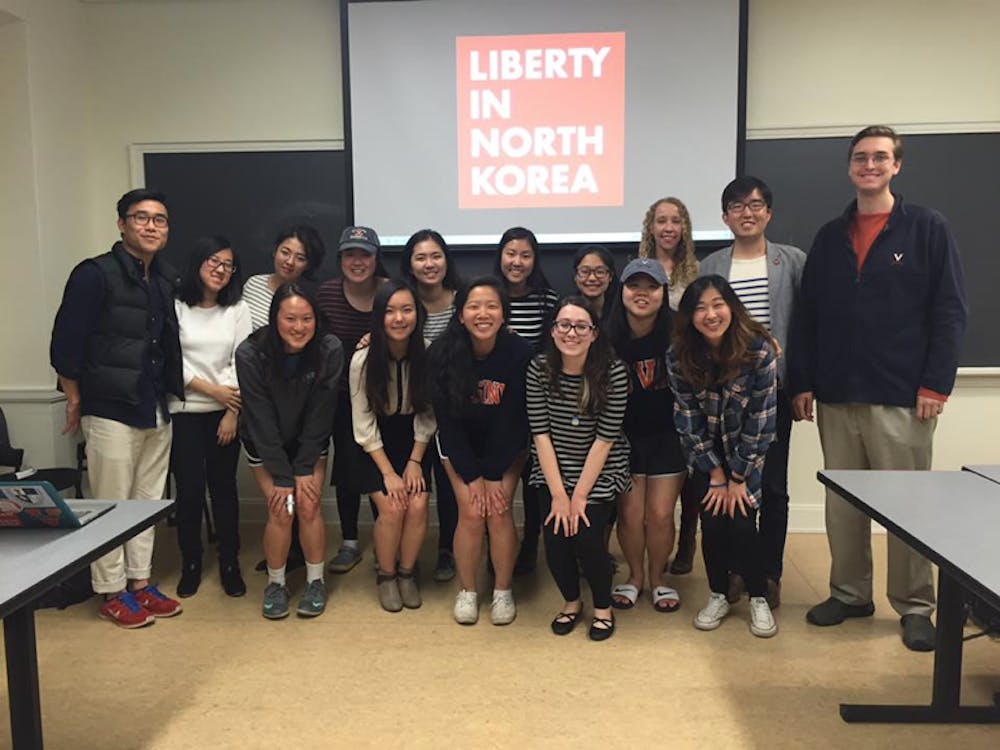Liberty in North Korea, the University chapter of a national refugee rescue organization, hosted its first general body meeting Monday evening. About 30 people were in attendance, including executive board members who introduced themselves and explained their roles.
The group operates as part of the national LiNK refugee rescue organization that seeks to raise funds for those fleeing from the North Korean regime and resettling in new nations. Funds raised by the University chapter go directly toward resettlement programs, like refugee housing, healthcare, translation services and mental health care.
The chapter’s first general body meeting focused on explaining goals to new and returning members. Jina Lee, a third-year College student and LiNK chapter president, and Yoojin Lee, a third-year College student and LiNK chapter vice president, shared a video detailing the current state of human rights in North Korea. The video highlighted the group’s main objectives — to turn attention from highly publicized news to lesser known issues among the public and to rescue as many North Korean refugees as possible.
“We’re really advocating for the people, so the name ‘Liberty in North Korea’ may throw off some people, but I hope that people see that what we really stand for is the human rights issues and has nothing to do with politics,” Jina Lee said. “We really want to just ensure that more people in this world have basic freedoms and they have the choice to decide how to live their lives.”
This past summer, Jina Lee held an internship at LiNK headquarters in California. She had the opportunity to help with national fundraising and meet North Korean defectors, several of whom are featured in the video.
One such rescued refugee was a man who escaped to South Korea with the help of LiNK, eventually making his way to Columbia University to study with the help of a LiNK scholarship.
“Things we do here may seem very small, but when I got to meet the defectors and talk to them face to face … The things that seem so minor made a really big impact on their life,” Jina Lee said.
Yoojin Lee explained the chapter’s two main goals are to fundraise and raise awareness. This year, the group will hold monthly fundraisers — primarily food sales — and host regular speakers, while trying to involve the larger University community.
“Our goal is to raise $3,000,” Yoojin Lee said.
This amount covers the resettlement of one refugee. LiNK focuses its nationwide “rescue team” efforts on securing the resettlement of refugees one-by-one, and this amount would cover the resettlement costs of a single refugee. Online fundraising pages offer platforms and background information on those being resettled.
Third-year Batten student Haerhee Lee attended the meeting and said she was interested in LiNK because her family has a long history of humanitarian work, specifically with North Korea.
“I hope to do more than just help one defector, but … this organization was the closest I could find that could help that,” Haerhee Lee said. “[I do think] putting some politics in it is important in raising awareness and that we need to discuss the politics around the situation.”
Following the death of University student Otto Warmbier, the subsequent travel ban and recent developments in North Korea’s reported nuclear arsenal, many students have become more aware of living conditions for North Koreans.
“It was an awakening of how dire the situation is over there,” Haerhee Lee said. “I think it definitely affected me and a lot of people in the community to redirect our attention. It could happen to anyone.”
Haerhee Lee also expressed interest in having LiNK’s University chapter partner with other contracted independent organizations on Grounds to further their efforts.
Third-year College student Danny Song is a returning LiNK chapter member who said he joined in part to learn more about his family’s cultural heritage, and that he finds it important for people to learn about the situation in North Korea beyond what they see in the news.
“Just talking with some of my other Korean friends — just having segregated North and South Korea — what happened is really sobering because you realize the opportunities that you’ve had,” Song said. “I dream of a day where I can just say I’m from South Korea and not say the South part of it.”





